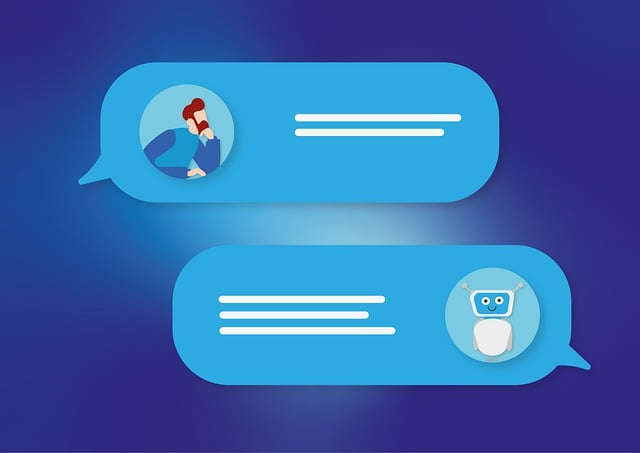AI chatbots and assistants have revolutionized customer service by offering instant, global support with natural language understanding, handling routine to complex tasks. However, as these technologies integrate deeper into operations, ethical considerations become paramount. Key areas include transparency about capabilities and constraints, protecting user data privacy, and addressing biases in response generation to ensure fairness and inclusivity. Developing AI assistants with a strong ethical foundation respects user privacy, avoids biased decision-making, and maintains public trust. Implementing ethical guidelines, promoting diversity, cultural sensitivity training, and regular audits are crucial steps. Enhanced transparency through clear data handling practices, reporting limitations, and simple language explanations builds user trust and improves AI customer service experiences.
In an era driven by artificial intelligence (AI), chatbots and virtual assistants are transforming customer service dynamics. As AI chatbots handle increasing volumes of interactions, ethical considerations become paramount. This article delves into the intricate landscape of AI customer service, highlighting potential ethical dilemmas and the crucial role of guidelines in shaping Responsible AI assistant behavior. We explore strategies to enhance transparency and user trust while emphasizing the importance of continuous evaluation for future-proofing these technologies.
- Understanding AI Chatbots and Assistants in Customer Service
- The Importance of Ethical Considerations in AI Development
- Potential Ethical Dilemmas in AI Customer Service Interactions
- Implementing Ethical Guidelines for AI Chatbot Behavior
- Enhancing Transparency and User Trust in AI Assistant Functionality
- Future-Proofing: Continuous Evaluation and Improvement of AI Ethics
Understanding AI Chatbots and Assistants in Customer Service

AI chatbots and assistants have revolutionized customer service, offering instant, 24/7 support to users worldwide. These advanced tools are designed to mimic human conversation, understanding natural language queries and providing context-aware responses. In the realm of customer service, AI assistants can handle a wide range of tasks, from answering frequently asked questions to resolving complex issues, thereby improving efficiency and enhancing user experiences.
However, as AI chatbots and assistants become more integrated into customer service operations, it’s crucial to prioritize ethics in their functionality. This involves ensuring transparency about the chatbot’s capabilities and limitations, protecting user data privacy, and mitigating potential biases in response generation to promote fairness and inclusivity.
The Importance of Ethical Considerations in AI Development

In the rapidly evolving landscape of artificial intelligence (AI), developing AI chatbots and assistants that serve as reliable and ethical aids to humans is paramount. As AI customer service becomes increasingly prevalent, these technologies must be crafted with a deep understanding of their potential impact on society. Ethical considerations are not merely a box-ticking exercise; they are the foundation upon which trustworthy AI is built. By prioritizing ethics in AI assistant functionality, developers ensure that these systems respect user privacy, avoid biased decision-making, and maintain transparency in operations.
This commitment to ethical development fosters public trust, a crucial element for the widespread adoption of AI chatbots and assistants. Moreover, it enables these technologies to serve their intended purposes—enhancing efficiency, improving access to information, and enriching human interactions—without inadvertently causing harm. In terms of AI customer service, prioritizing ethics means creating systems that not only resolve issues but also do so in a way that upholds human dignity and rights.
Potential Ethical Dilemmas in AI Customer Service Interactions

As AI chatbots and assistants become increasingly integrated into customer service roles, several ethical dilemmas emerge that demand careful consideration. One significant concern revolves around data privacy and security. These AI agents rely on vast amounts of user interactions to learn and improve, but this access to personal information carries risks of misuse or unauthorized disclosure. For instance, an AI assistant could inadvertently leak sensitive details during training or be hacked, compromising user privacy.
Additionally, AI chatbots may struggle with handling complex emotional responses from customers. They might not always recognize nuances in human emotions, leading to inappropriate or insensitive responses. This is especially crucial in situations where empathy and compassion are essential for customer satisfaction and well-being. Ensuring that these technologies respect user autonomy, maintain transparency, and adapt to the ethical complexities of human interactions remains a significant challenge in shaping responsible AI assistant functionality.
Implementing Ethical Guidelines for AI Chatbot Behavior

Implementing Ethical Guidelines for AI Chatbot Behavior is a critical step in ensuring that these assistants uphold human values and principles. These guidelines should encompass fairness, transparency, and accountability, reflecting ethical considerations in every interaction. Developers must design AI chatbots to provide unbiased responses, respect user privacy, and disclose their capabilities honestly. For instance, an AI assistant in customer service should be programmed to handle sensitive inquiries with care, avoiding any form of discrimination or biased advice based on user demographics.
To achieve this, developers can incorporate diverse ethical frameworks, cultural sensitivity training data, and regular audits. The goal is to create robust AI models that mimic human-like behavior while maintaining integrity. By doing so, we can foster trust in AI technology, ensuring it complements human efforts in customer service and other sectors without compromising ethical standards.
Enhancing Transparency and User Trust in AI Assistant Functionality

In the realm of AI chatbot and assistant functionality, enhancing transparency and user trust is paramount for fostering effective AI customer service. Users often lack a full understanding of how these intelligent systems work, which can lead to concerns about privacy, data security, and algorithmic biases. To address this, developers must prioritize clear communication about data collection practices, ensuring users know what information is being gathered and how it’s utilized. Transparent reporting on the limitations of AI capabilities and potential biases inherent in training data can go a long way in building trust.
Furthermore, providing easy-to-understand explanations for AI decisions and recommendations can significantly improve user experiences. This could involve incorporating simple, accessible language to describe complex algorithms or using interactive features that allow users to explore and comprehend the rationale behind AI outputs. By making AI assistants more transparent and trustworthy, businesses can better leverage these technologies while ensuring customer satisfaction and long-term engagement.
Future-Proofing: Continuous Evaluation and Improvement of AI Ethics

As AI chatbots and assistants become increasingly integrated into daily life, ensuring their ethical development and deployment is paramount. Future-proofing this technology involves continuous evaluation and improvement of its ethical parameters. Regular audits and updates are necessary to keep up with evolving societal norms and legal frameworks. Developers must implement robust mechanisms for data privacy protection, bias detection, and transparent reporting. By fostering a culture of ethical AI, companies can deliver reliable and trustworthy assistants that enhance user experiences while mitigating potential harms.
This proactive approach extends to the realm of AI customer service, where chatbots are increasingly handling complex queries. Continuous improvement ensures these systems remain fair and accountable. As AI technology advances, so must our ethical standards, ensuring these tools serve humanity without causing unintended consequences or exacerbating existing inequalities.






